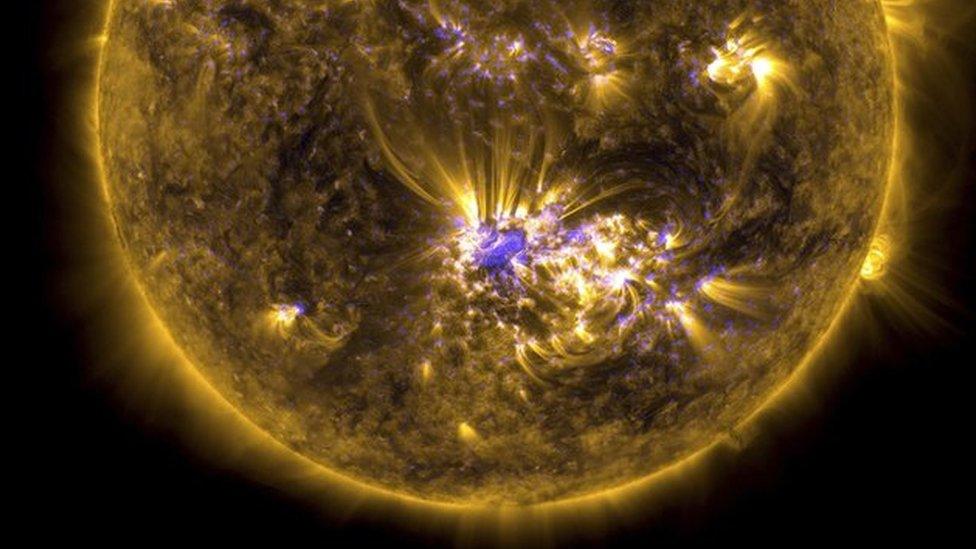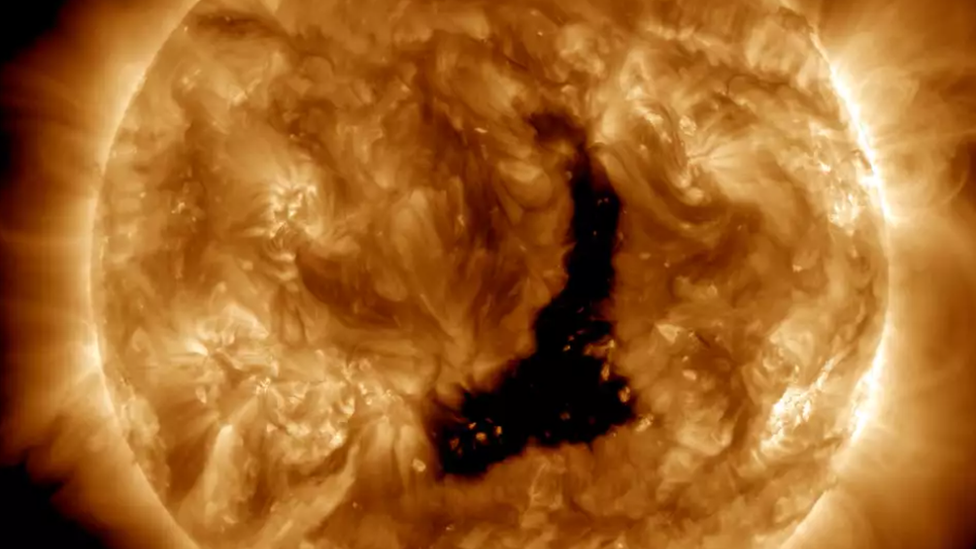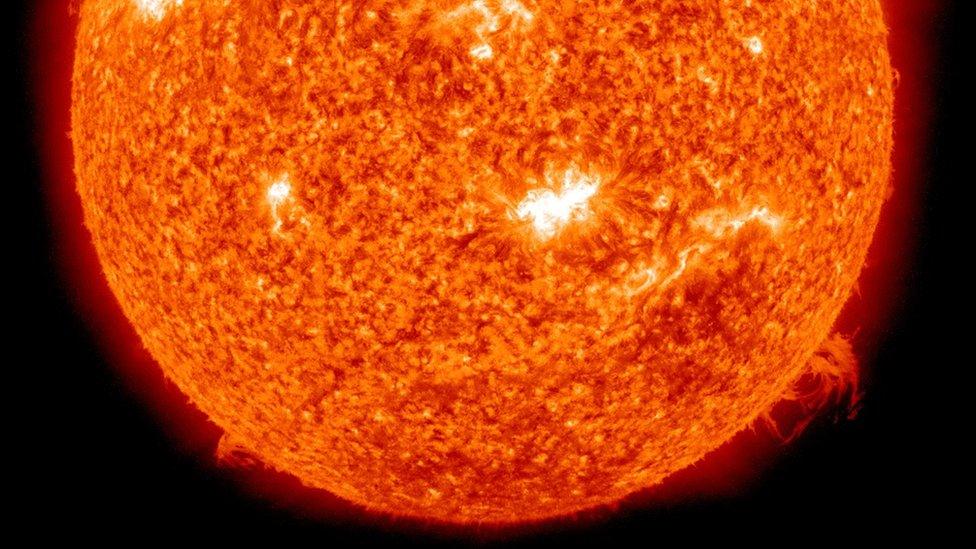Rare solar storms could cause rail network chaos, scientists warn
- Published

The rare space weather events can wreak havoc with electrical systems on Earth
Rare solar storms could cause chaos on the UK's railways by triggering "powerful magnetic disturbances", scientists have warned.
A study at Lancaster University found the celestial events could disrupt the network's electrical systems and cause signals to switch from red to green.
Researcher Cameron Patterson said the "relatively rare" storms needed to be "taken seriously" by the rail industry.
However, Network Rail said it considered the risk to be "very small".
Solar storms are caused by high-energy particles blasting the Earth after they are released in explosive outbursts from the Sun.
They can disrupt technology and power grids, as proved when a solar flare caused a nine-hour blackout for millions of people in the Canadian province of Quebec in 1989.
The Victorians also struggled with the effect of space weather in 1859 when a huge solar eruption caused a geomagnetic storm that interfered with railway signalling and telegraph lines.
'Space weather forecasts'
A team of researchers at Lancaster University looked at how these space weather events created geomagnetically-induced electrical currents which could cause rail signals to malfunction.
They tested this using a computer model of the Preston to Lancaster section of the West Coast Main Line, as well as the Glasgow to Edinburgh line.
Mr Patterson, a physics PhD researcher, said the study showed that "high-impact, low frequency" solar storms did pose risks.
Expected in the UK every few decades, they could lead to "significant signalling misoperation, which has an obvious safety impact," he added.
Solar storms are more likely during the peak of an 11-year cycle of the sun's magnetic activity, know as the "solar maximum".
The Lancaster research team confirmed the next solar maximum is expected about 2025 or 2026, but said the space weather can also occur at other times
Jim Wild, professor of space physics at Lancaster University urged the rail industry to consider the risks of these space weather events, and how to protect their services against them.
"In future, we could see space weather forecasting being used to make decisions about limiting railway operations if an extreme event is expected, just as meteorological forecasts are used currently," he said.
Martin Frobisher of Network Rail, which runs most of the country's rail network, said while the storms were theoretically a threat, the firm considered the storms to be a "very small risk".
"We need to focus our limited resources on higher priority issues such as climate change," he added.

Why not follow BBC North West on Facebook, external, X, external and Instagram, external? You can also send story ideas to northwest.newsonline@bbc.co.uk, external
Related topics
- Published9 December 2023

- Published22 November 2018

- Published8 March 2012